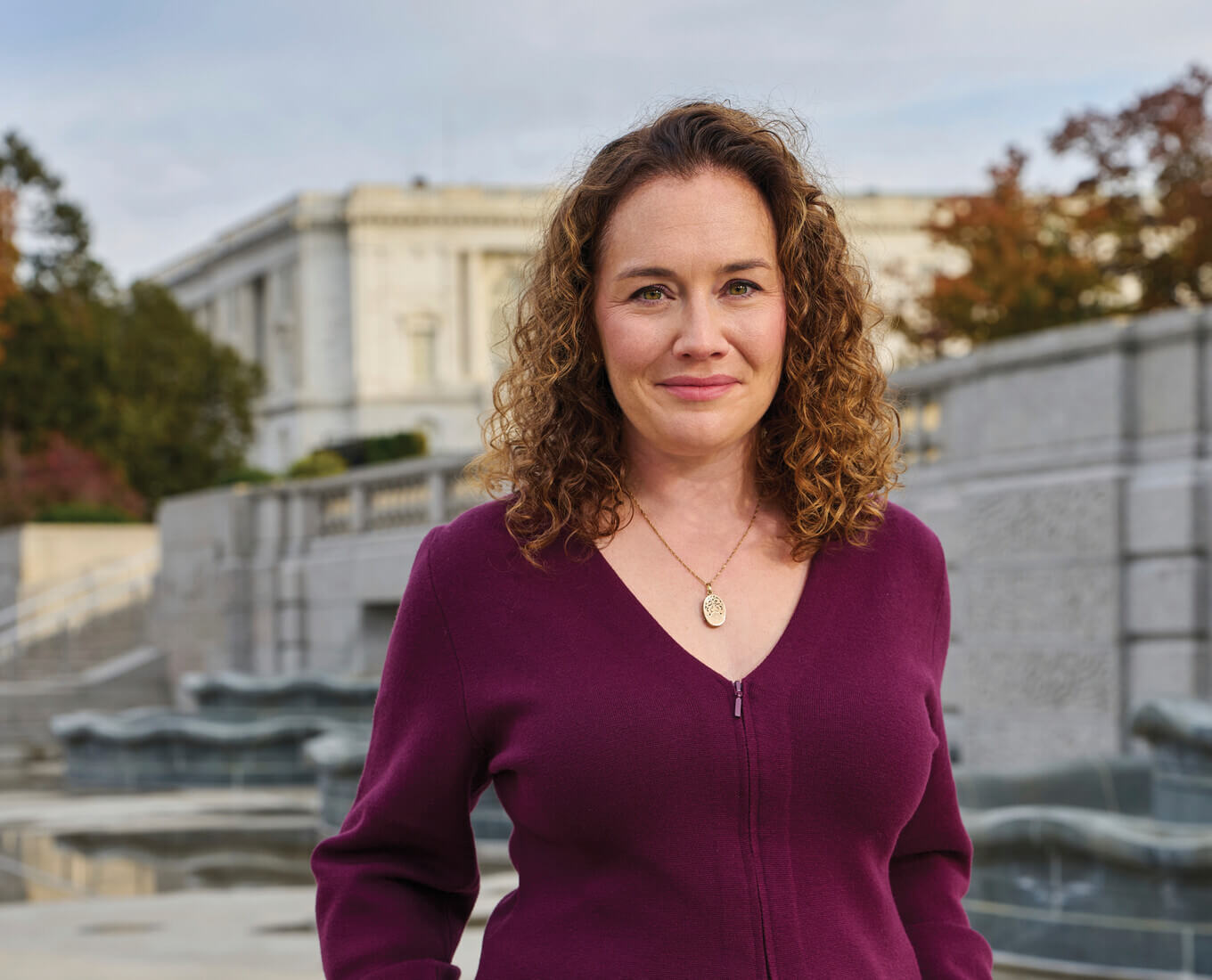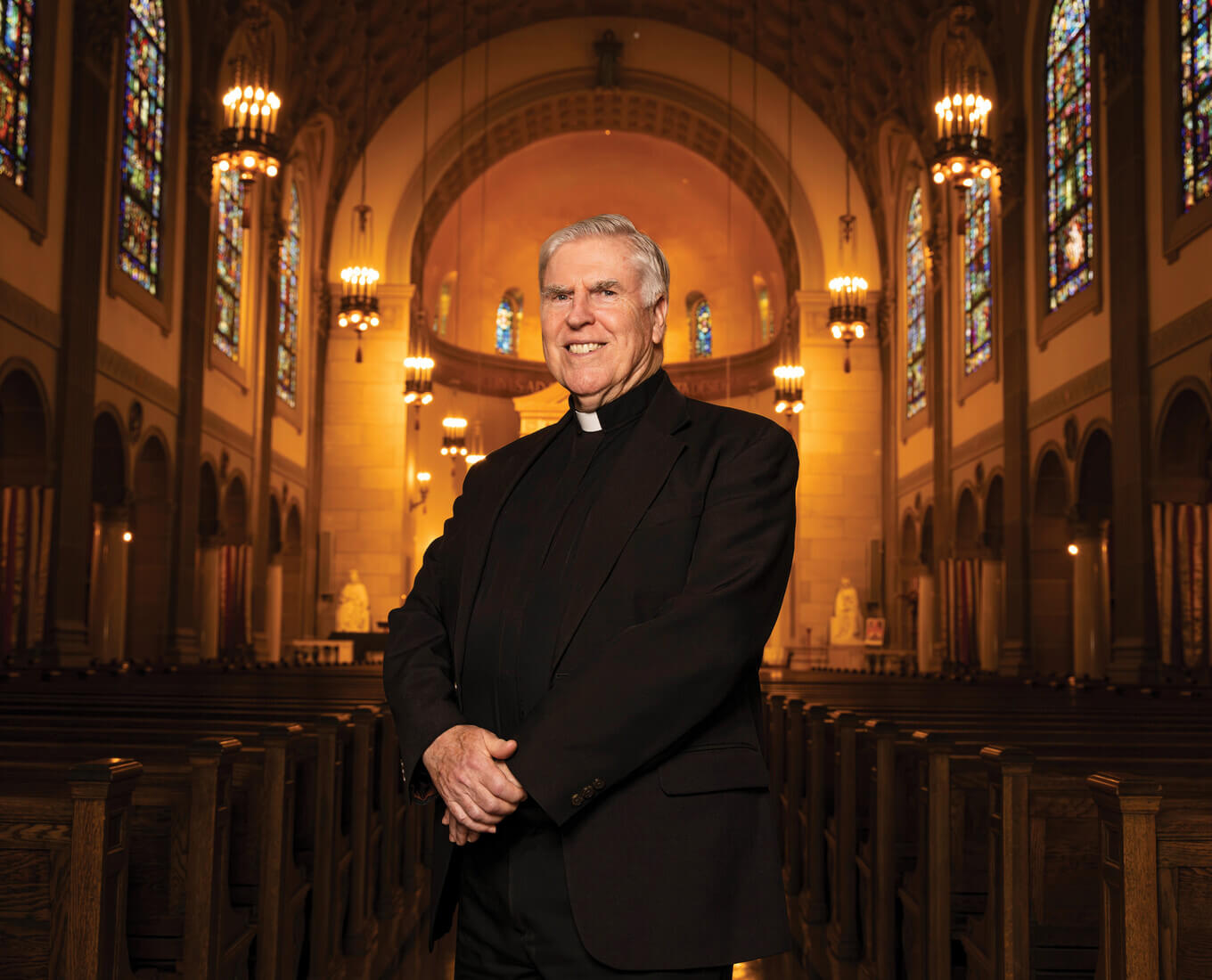Access to health care. Disasters and the environment. Humanitarian action and the media. These were only some of the challenging topics 10 Holy Cross students, including myself, tackled during the second biennial Jesuit Universities Humanitarian Action Network (JUHAN) Conference held at Georgetown University this month. We were accompanied by Timothy Austin, vice president for academic affairs and dean of the College, and Maria Rodrigues, associate professor of political science.
A natural expression of the Jesuit ideal of developing students as “men and women for others” and integrating academic learning, reflection and action, JUHAN was created to help Jesuit universities better understand and respond to the complexities of global humanitarian crises.
The national conference provided us — along with scores of peers from Jesuit colleges and universities around the country — the opportunity to learn from experts working in fields such as security, development, relief, refugee protection, and media. We also participated in exercises fostering understanding of humanitarian issues.
Taking place in Washington, D.C., the U.S. hub of international affairs, we heard from several top influential speakers and experts in the field.
In his presentation at the conference, Andrew Natsios, former administrator of the U.S. Agency for International Development, shared insights about his interactions as U.S. envoy to Sudan with Sudanese President Omar al-Bashir as well as the head of the Janjaweed. Pressure from the United States and other powers on Sudan to end mass killing, Natsios said, resulted in a decrease of direct killings by the Janjaweed in Darfur.
Speaking to a young audience with a save-the-world attitude, Natsios’ story of the power of humanitarian action in a world where respect for human rights is not universal offered conference members hope and purpose, and fulfilled JUHAN’s purpose.
In addition to seminars, we took part in less formal discussions regarding the merits, downsides and nature of humanitarian action, and how each college has dealt with humanitarian crises.
Speaking for Holy Cross, Jennifer Caffrey ’11 and I described steps Holy Cross took in response to the earthquake in Haiti, referencing the efforts of the Student Government Association’s Haiti task force, which raised nearly $20,000 for relief efforts, and a lecture by two Pulitzer Center journalists who shared their Haiti reporting project at Holy Cross.
In response to a major goal of the conference, students representing each school brainstormed and presented ways to take back JUHAN’s mission to their respective schools.
In an eloquent presentation, Piero Iberti ’11 voiced our support for a national “humanitarian action day” across Jesuit colleges, and a possible summer school consisting of classes related specifically to humanitarian issues. Other Holy Cross students suggested panels, presentations and discussions on campus pertaining to human crises, and using student groups such as SPUD (Student Programs for Urban Development) and SGA as resources to rally support behind such issues.
Dean Austin is supportive of such plans.
“This was my second JUHAN conference and it confirmed my impressions from the 2008 meeting at Fordham,” he says. “In my experience, Holy Cross students appreciate learning about the (admittedly sometimes frustrating) realities of humanitarian work; and when they are challenged to consider practical ways to address a needy world, they come up with creative and potentially viable solutions. Our challenge now is to keep the flame of our enthusiasm alight till everyone returns to campus in August — then set about spreading the word!”
Aside from the academic lectures and discussion, we found it exciting to be around students from as far away as California who are all passionate about global quality of human life. In fact, one important message conveyed by the conference was that humanitarian action does not depend on humanitarian crisis.
“There is a great need not just for the immediate, operational aid in a time of crisis, but also for the development and advocacy of humanitarian action,” says Kathryn Cody ’11. “As students, we do not have to wait around for a disaster to hit (or rather, be called to our attention by the media). There is much that can be done, especially when we unite and work together, between our class years, student organizations and activities, and institutions, as is modeled through the JUHAN conference. It was encouraging seeing so many students learning and working with and from one another, and embracing our human responsibility to be women and men for others.”
The participating universities — Boston College, Creighton, Fairfield, Georgetown, Loyola Chicago, Loyola Maryland, Loyola Marymount, Loyola New Orleans, Marquette, University of San Francisco, Santa Clara, Scranton, and St. Joseph’s — provided diversity of student background and perspective; yet, the forward-looking nature of the conference united us all.
View a photo of the entire Holy Cross delegation at the JUHAN conference »
By Claire Luke ’10
Pictured: Piero Iberti ’11 gives a presentation at the Jesuit Universities Humanitarian Action Network (JUHAN) Conference.
Holy Cross Students Join Peers from Jesuit Colleges in Discussing Humanitarian Action

Participants plan to intensify humanitarian advocacy at Holy Cross
Read Time
4 Minutes

